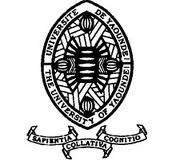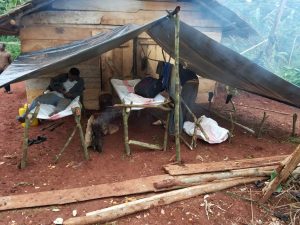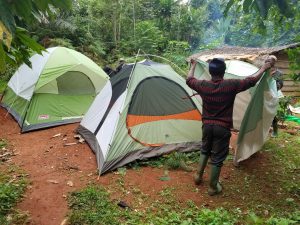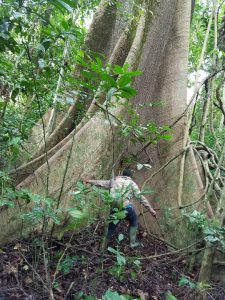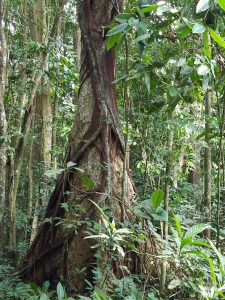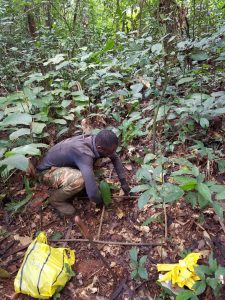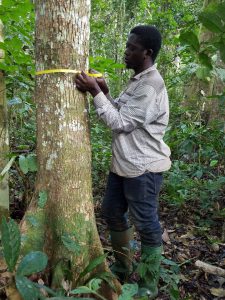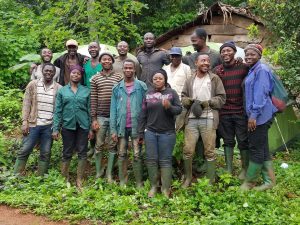Start date: January 2018
End date: December 2020.
Project Leader: Jules Christian ZEKENG
Plant diversity conservation has become one of the most critical objectives of forest management in an ecologically sustainable way. Forest ecosystems such as communal forests are habitats whose potential remains little explored. In Cameroon’s Eastern region, a study aimed at understanding the impact of logging and abiotic factors on habitat-species associations and carbon stocks with a particular focus on biodiversity conservation and sustainable forest management was conducted in the Doume Communal Forest (DCF). This study aim to provide baseline data for developing a Conservation and Sustainable Management Strategy (CSMS) of the Doume Communal rain forest in the eastern Cameroon and in building the technical capacity for the CSMS’s implementation.
Major outcome
- The forest plots inventoried host approximately 307 species with 16 % representing high-priority species for conservation. The species-habitat association were grouped into four habitats each characterized by indicator species. This study revealed that the DCF forest stores an average of 60 ± 51.19 Mg C ha-1, and that aboveground live carbon pool, with an average of 182.62 ± 33.59 Mg C ha-1.
- As outcome of this project we have three publications: https://link.springer.com/article/10.1007/s12224-021-09393-9;https://linkinghub.elsevier.com/retrieve/pii/S0378112719314653 https://link.springer.com/article/10.1007/s40808-019-00637-4 https://www.sciencedirect.com/science/article/abs/pii/S0378112722003826?via%3Dihub
- Several presentations at international conferences. We have also two Master and one Ph.D thesis defended.
- Building technical capacity of local manager of the Communal forest.
This project has increased interest in biological conservation in Cameroon’s communal forests within the Department of Plant Biology of the University of Yaoundé I. In addition, this project has also inspired many collaborators within CSNRM-NET Organisation.


